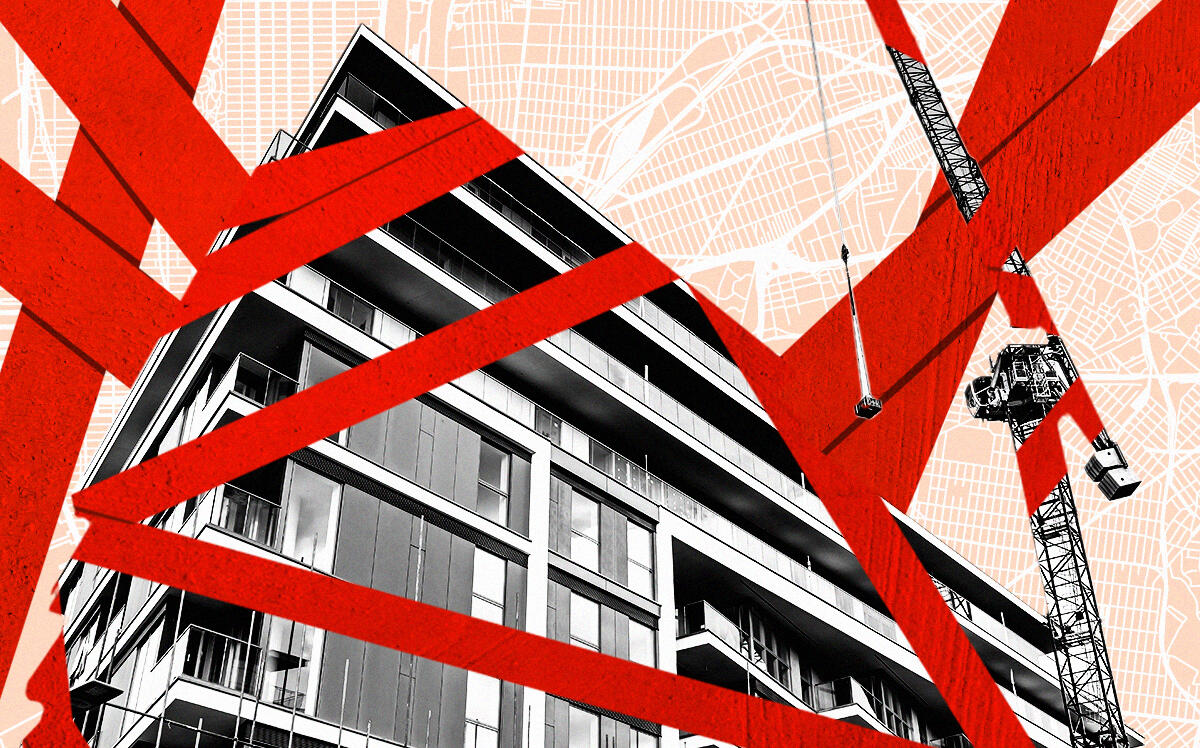 Council speaker proposes overhaul of land use process
Council speaker proposes overhaul of land use process
Trending
Rezoning for more housing costs developers a fortune: report
A new report by the Citizens Budget Commission floats changes to Ulurp, environmental review

Rezoning in New York City will cost you — adding as much as $45 million to a high-rise apartment project.
That is according to a new report by the Citizens Budget Commission, which recommends changing the city’s review process to cut down on time and money spent by developers and reduce the cost of housing.
The report, which examined 171 private zoning applications filed between 2014 and 2017, found that the median time for a land use application to finish the city’s approval process was two and a half years. Some 80 percent of that was spent on pre-certification and environmental review.
A process of this length can increase development costs by 11 to 16 percent — $63,000 per unit in a low-rise multifamily project and $76,000 per unit in a high-rise. That’s $45 million on larger projects, when accounting for inflation, according to the watchdog group.
Its report recommends several changes to the city’s Uniform Land Use Review Procedure, or Ulurp, and the lengthy pre-certification process.
Before an application is certified and begins Ulurp, a months-long process that culminates in a City Council vote, developers must complete a study of their project’s potential impact on the surrounding neighborhood. The Citizens Budget Commission offers a range of suggestions for revising the state-governed environmental review process, calling it is the most expensive and time-consuming part of land use reviews.
The organization pitches limiting the kind of projects that are subject to environmental review and even floats the idea of exempting all land use applications, noting that other local, state and federal laws govern issues such as stormwater management, building emissions, coastal resiliency and brownfield remediation.
New York is one of seven states that mandates environmental review for discretionary land use actions. It has the longest median timeline for approvals among cities that have similar requirements, according to the report.
The report also takes aim at the City Council’s custom of member deference, in which it votes on land use issues based on the opinion of the local member. The watchdog suggests the city weaken an individual member’s ability to kill a project by creating an appeal process for rejected applications or requiring a supermajority vote to override approvals by the City Planning Commission.
These would require changes to the City Charter and would likely face fierce pushback by the City Council. Members are generally supportive of member deference, only defying it twice in recent memory (last year and in 2009).
The report’s author, Sean Campion, CBC’s director of housing and economic development studies, acknowledged that the change would be a tough sell.
“It is hard to change something that has evolved by custom,” he said. “None of the solutions are fast or easy or quick.” He added that the report’s recommendations are aimed at better communicating the potential benefits of a project and how they further the city’s housing and economic development goals.
Read more
 Council speaker proposes overhaul of land use process
Council speaker proposes overhaul of land use process
 Mayor’s Mandatory Inclusionary Housing is failing: report
Mayor’s Mandatory Inclusionary Housing is failing: report
 Here’s how Industry City’s controversial rezoning unraveled
Here’s how Industry City’s controversial rezoning unraveled
The report also recommends removing the borough president and community board reviews of applications from Ulurp, instead having them coincide with the start of environmental reviews. This could give borough presidents and community boards more influence over a project. Currently, they hold hearings on an application at a point where any significant changes would require a developer to re-do the environmental review.
The Adams administration has pushed for removing “unnecessary barriers to development,” and formed the Building and Land Use Approval Streamlining Taskforce, or BLAST, to come up with ways to make the permitting process more efficient. It cheered the nonprofit for chiming in.
“City Planning is determined to cut time and red tape out of the land use process, which has become too long, too cumbersome, and has the unfortunate effect of discouraging investment,” Dan Garodnick, head of City Planning, said in a statement. “We are already making strides, and as we prepare to publicly share DCP’s reforms, we are very happy that New York City advocacy groups are engaging on these central issues.”
Mitch Korbey, chair of Herrick’s land use and zoning group and a former City Planning official, commended the report for its comprehensive look at private applications, but noted that it ignored government-led rezonings, which can drag on for longer than two years and tend to have much more of an impact on the city as a whole.
He added that he doesn’t see two years for a significant rezoning to be “particularly onerous.”
“I think most developers understand that it takes time,” he said. “I don’t think it is fair to compare New York to other places in terms of how long these things take.”



